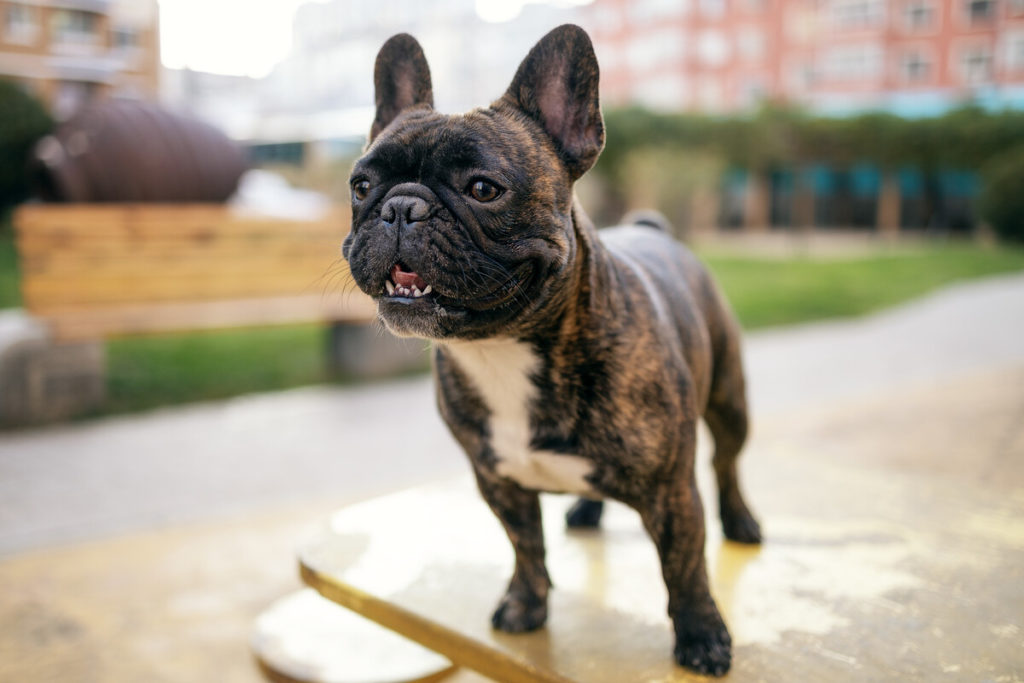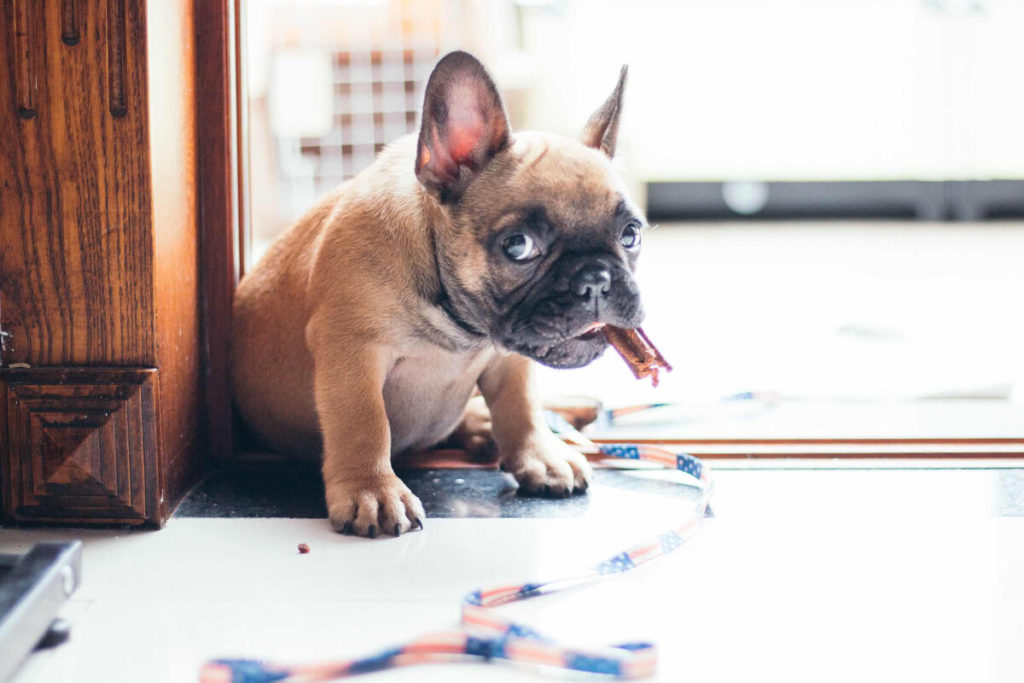Drooling is very natural in Labradors and there are many reasons why they drool. In this article we will discuss reasons why your dog may be drooling and if they are serious or not. If it is a serious issue, we will discuss the signs to look for in your dog’s behavior and the steps you should take to correct them.
Do Labradors Drool?
Like most breeds of dogs, Labradors drool. Most often the drooling is caused by the excitement of food. Just the sight of food or watching humans eat can cause drooling. It is known that Labradors that have larger jaws will drool more than those with smaller jaws. They are also known to drool more after they eat, drink, or exercise.
Excessive drooling is not common in Labradors. If you notice them drooling all the time or uncontrollably that could be a sign of an underlying problem. It is important to get to the bottom of the problem so they can live a happy and healthy life.

What Causes Labradors to Drool Excessively?
Excessive drooling is not common in Labradors. If you notice drooling every time you check them, then there might be an underlying problem. There are many reasons for a dog to drool. Some may indicate health problems.
Listed below are some causes that cause drooling. Some are more serious than others.
Stuck Objects
Having stuck objects in your Labradors mouth can cause excessive drooling. Dogs love to chew on items they find around the house, especially small objects left on the floor. If something is stuck in their mouth, this can cause them pain in their gums and teeth.
Immediately check their mouth for objects if you notice excessive drooling. If you are unable to locate the object, it may be a good idea to take them to the veterinarian immediately to find out the cause of the excessive drooling.
Anxiety/Excitement
Anxiety and Excitement can cause your Labrador to drool excessively. They may experience excitement over food, people they know, or other dogs.
They may also experience anxiety for example in new places, around people, or if they hear loud noises. If they do not stop drooling when the experience is over, there may be an underlying issue.
Proper Diet
Labradors are a food motivated breed. If their diet changes, you may notice more drooling than normal. The amount of food needed that is on the back of the dog food bag is a recommendation. You may be feeding them the recommended amount, but notice they are still hungry when finished, so they may need more added. In addition, you may notice they are leaving a lot of food and need less.
If they are not being fed routinely, this may cause drooling as well. Be sure to keep a routine with their feeding times to prevent the extra drooling.
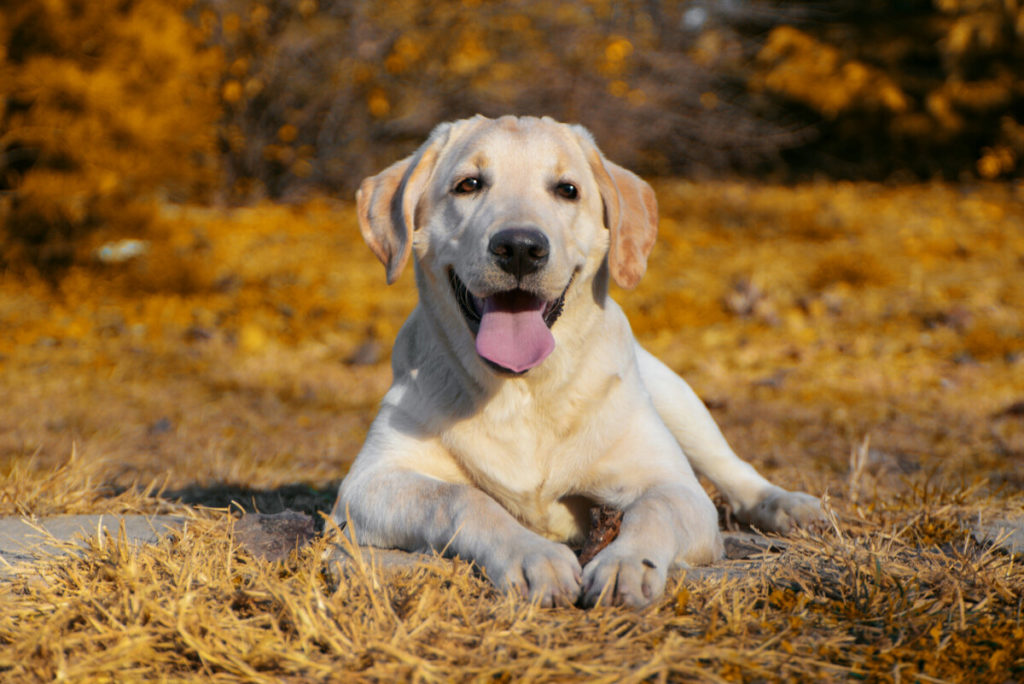
Poisoning
Poisoning is one of the major causes of excessive drooling in Labradors. Food poisoning can cause them to slow down and even collapse in extreme pain. Being exposed to a dangerous toxin can also cause them to drool excessively.
Dental Issues
Some dental problems could be the cause of excessive drooling. Some of these problems include tarter, gingivitis, tooth decay, and tooth fractures. Any injury to the mouth, such as swollen or bleeding gums, can also be the cause of the drooling.
If your Labrador is refusing to eat, whining, whimpering, or always in a bad mood, a visit to your veterinarian is highly recommended.
Rabies
Rabies is a serious disease that can cause excessive drooling. Be sure to get your Labrador vaccinated regularly as the rabies vaccination only lasts for about a year. This disease can be dangerous for your dog as well as other people who may be bitten by them.
Heatstroke
Being too hot can cause drooling in your Labrador. During extremely warm temperatures, be sure they have plenty of water to drink and have access to shaded areas.
Giving them some extra grooming time to take care of those loose hairs will also help in keeping them cool.
Nerve Damage
Nerve damage can cause extra drooling. If they had a tumor or injury that has caused nerve damage, then fully closing their mouth becomes difficult. This can also inhibit them to move facial muscles properly. If nerve damage is the case, they will struggle to eat and drink properly.
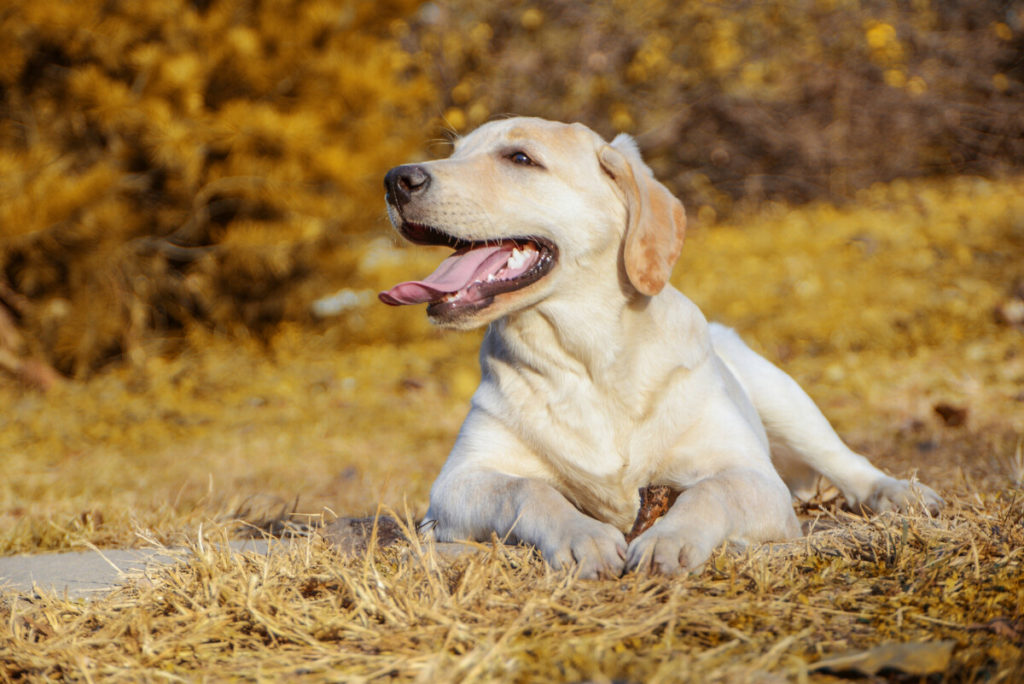
Digestive System Issues
If there is a blockage in the intestines, your Labrador’s stomach can become bloated or dilated. This condition is called gastric dilatation-volvulus. Because they are not able to vomit out the trapped food and water, you may notice excessive drooling. The drooling can be an effect of your dog being in a lot of pain from the stomach issues.
This can be life threatening issue. If you see any of these issues occurring, be sure to see your veterinarian promptly.
Liver Issues
If your Labrador is suffering from any kind of liver issue this can cause excessive drooling. Problems with the liver can cause them to feel weak, have uncoordinated movement, and show changes in behavior. It is highly advised to have them checked by a veterinarian if you notice excessive drooling.
How Do I Prevent My Labrador From Drooling?
If you have noticed excessive drooling in your Labrador there are some actions you can take to prevent it from happening. However, if you are worried be sure to consult your veterinarian.
Find the Cause
There are steps you can take to help you find the trigger of the excessive drooling. Your first action should be to check to see if there is something stuck inside their mouth. If you see something stuck, remove it immediately to avoid any other problems from occurring.
If you do not find anything, then a visit to the veterinarian is recommended. The vet will be able to tell you what is causing the excessive drool. Other triggers can be unfamiliar faces and loneliness, so extra cuddles may be needed to stop the drooling.
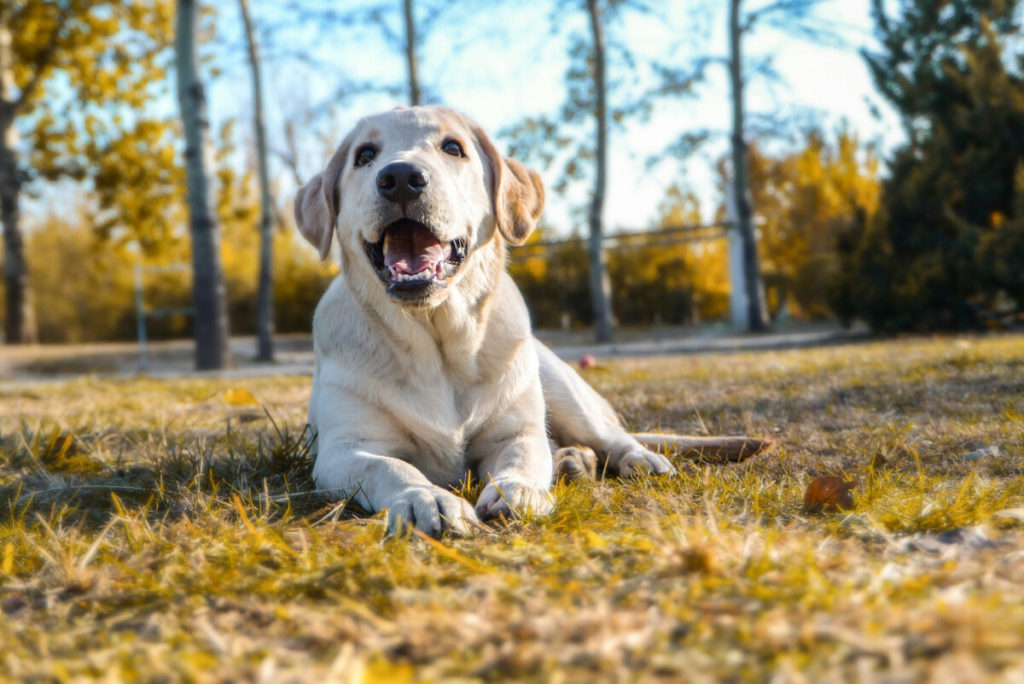
Ensure Proper Food and Water Amounts
Giving your Labrador the proper amount of food and water can help with drooling. Each dog food comes with a recommended amount of food to be given. If the recommended amount doesn’t seem to be working, they may need a little more or a little less of the food. Water should be readily available at all times to your dog.
Spend Extra Time Together
Labradors love spending time with their owners. If your dog is showing signs of anxiety or over excitement while drooling, spending some extra time with them can help. Find a quiet spot where you are able to have some extra bonding time with your dog. This will help you and them calm down and be more relaxed when you are together.
Give Your Lab a Bandana
Having a wet and sticky neck for a Labrador is not fun, especially if they are not feeling well. Tying a bandana around their neck will help catch the drool before getting to the fur. This can help them feel more comfortable while dealing with the drooling issue.
Conclusion
Drooling is a natural occurrence in Labradors. If you notice them drooling a little more than usual, you don’t need to become overly concerned. However, if you notice excessive drooling and behavior changes, you should have your veterinarian check them out. The vet will be able to diagnose the problem and tell you how to deal with the issue in the right manner.




